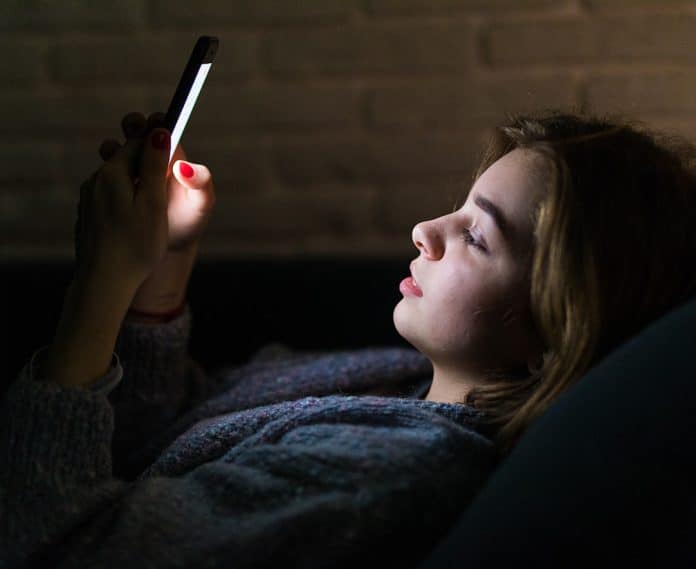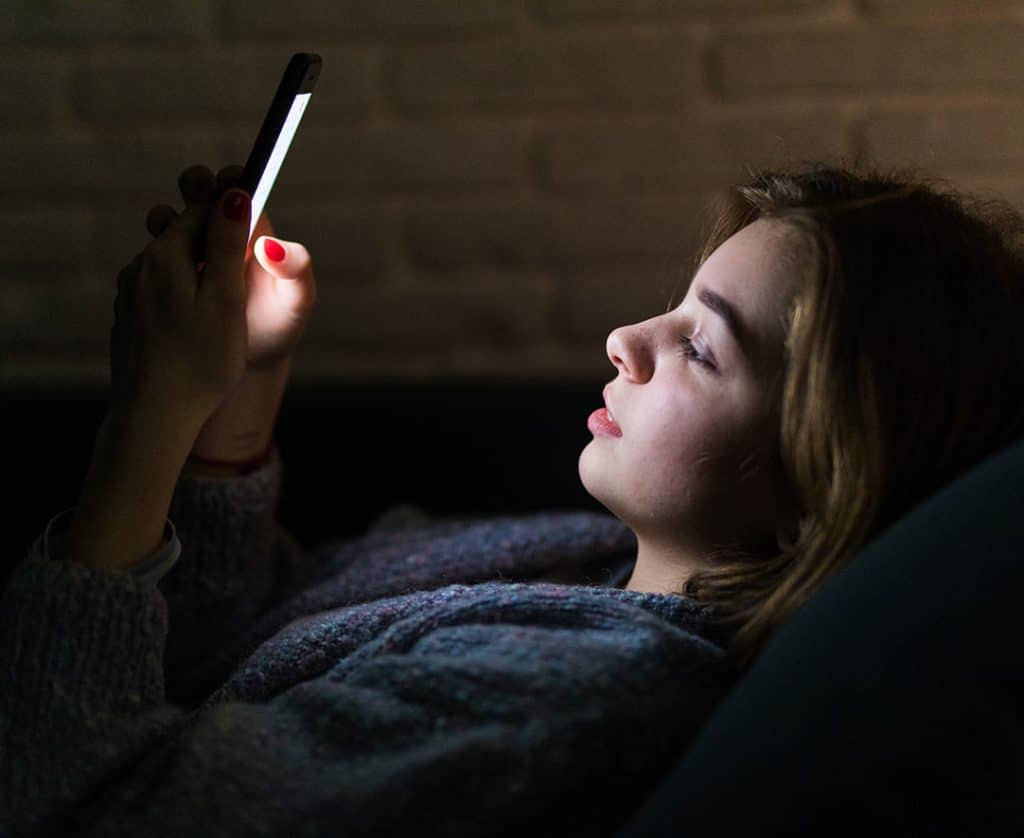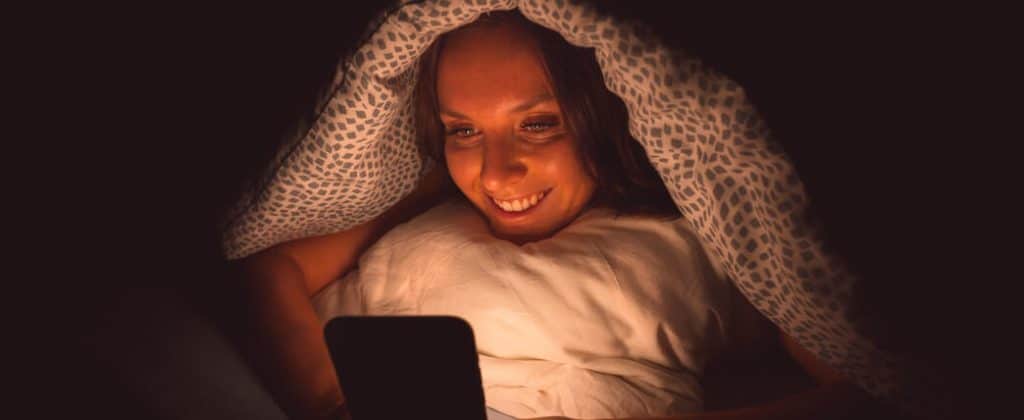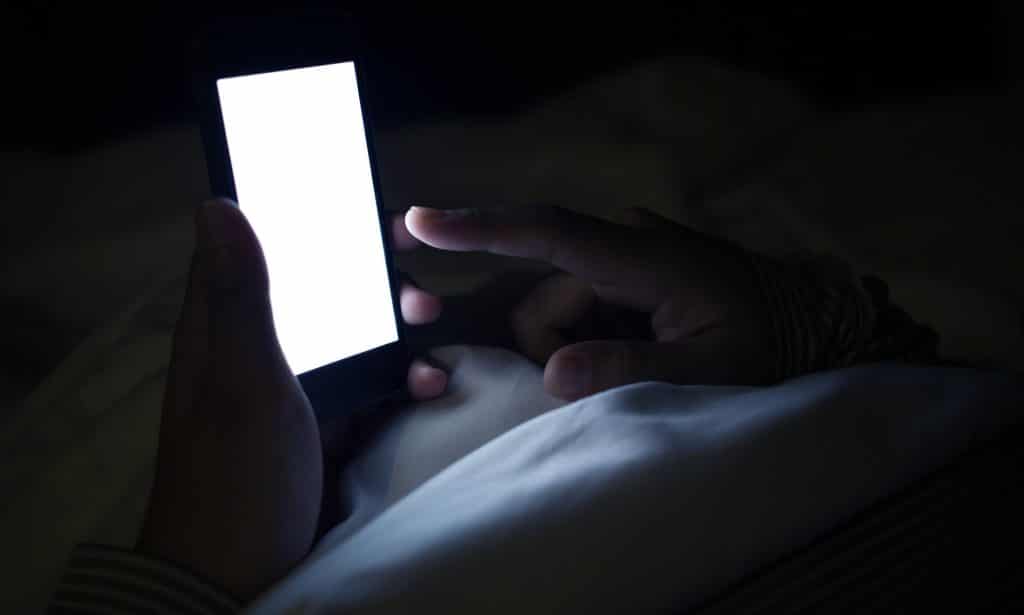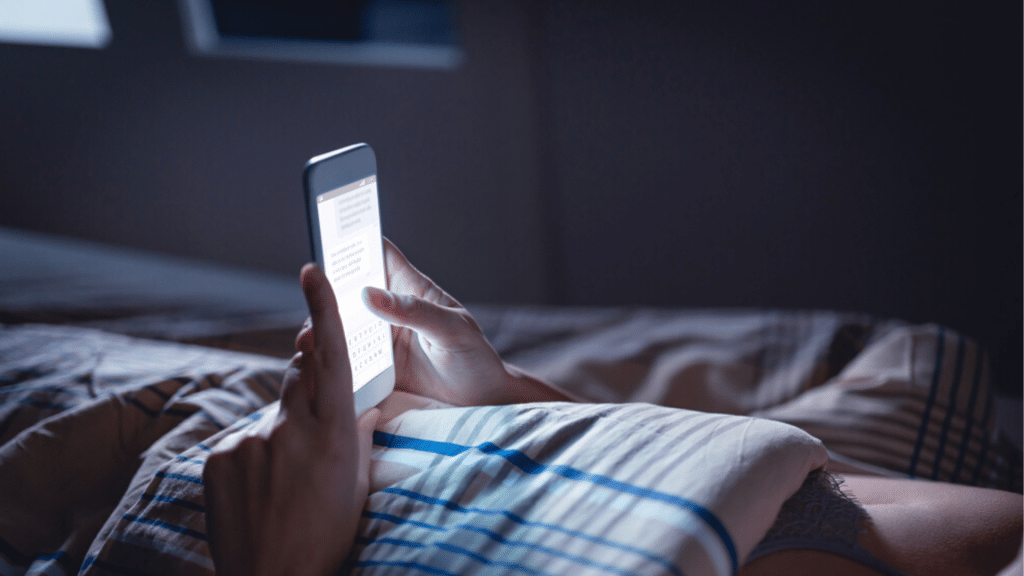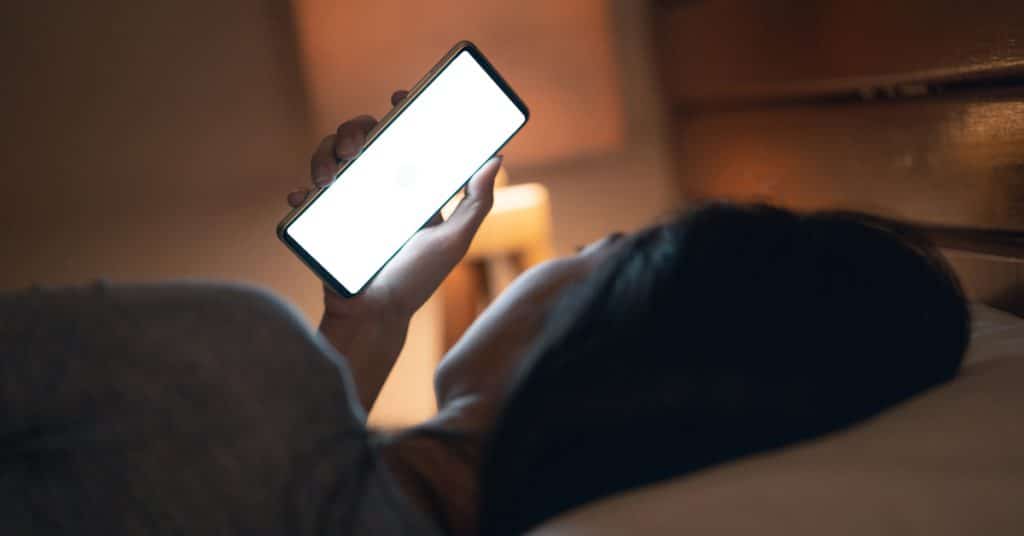In a world dominated by technology, we often find ourselves surrounded by screens from morning until night. We all know the struggle of being tempted to scroll through social media or binge-watch our favorite shows right before bed. But have you ever wondered if this nightly screen time could be affecting your sleep? With studies suggesting that the blue light emitted by screens can disrupt our natural sleep patterns, it’s time we consider whether avoiding screens before bedtime is the key to a good night’s sleep.
This image is property of mychn.org.
Review contents
Impact of screens on sleep quality
The role of blue light
Screens emit a type of light called blue light, which can have a significant impact on our sleep quality. Blue light has a short wavelength and high energy, making it particularly effective at suppressing the production of melatonin, the hormone that regulates our sleep-wake cycle. Exposure to blue light in the evening can trick our brains into thinking it’s still daytime, making it more difficult for us to fall asleep.
Effect on melatonin production
Melatonin is a hormone that helps regulate our sleep-wake cycle. When exposed to blue light, our bodies produce less melatonin, leading to difficulty falling asleep and disrupted sleep patterns. Research has shown that even short exposure to screens in the evening can suppress melatonin secretion and delay the onset of sleep. This can have a profound impact on our overall sleep quality and leave us feeling groggy and tired the next day.
Disruption of circadian rhythm
Our bodies have an internal clock, known as the circadian rhythm, which regulates our sleep and wake cycles. Exposure to screens before bedtime can disrupt this natural rhythm. The blue light emitted by screens suppresses the production of melatonin, confuses our internal clock, and throws off our sleep pattern. As a result, we may find it difficult to fall asleep, experience fragmented sleep, and wake up feeling unrefreshed.
Screen time and sleep disorders
Insomnia and difficulty falling asleep
Excessive screen time before bed has been linked to insomnia and difficulty falling asleep. The stimulating nature of screens, combined with the blue light they emit, can make it harder for our minds and bodies to relax and wind down. This can lead to a racing mind, increased anxiety, and difficulty falling asleep. The constant exposure to screens can create a vicious cycle of insomnia, as the more we struggle to fall asleep, the more we may resort to using screens to pass the time.
Increased likelihood of sleep disturbances
Using screens before bed can increase the likelihood of experiencing sleep disturbances throughout the night. The exposure to blue light can disrupt our sleep architecture, altering our REM sleep patterns and reducing the amount of deep sleep we get. This can result in more frequent awakenings, lighter overall sleep, and a decrease in sleep quality. Sleep disturbances can leave us feeling tired and irritable during the day, affecting our overall well-being and productivity.
Sleep fragmentation and reduced sleep duration
Frequent screen use before bed has been associated with sleep fragmentation and reduced sleep duration. The constant stimulus from screens can interfere with our ability to maintain deep sleep stages, causing disruptions in our sleep patterns. Additionally, scrolling through social media or engaging in stimulating activities on our screens can lead to delayed bedtimes and a shorter sleep duration. This can result in feeling fatigued, having difficulty concentrating, and experiencing daytime sleepiness.
Negative effects on sleep architecture
Altered REM sleep patterns
REM (Rapid Eye Movement) sleep is a vital stage of sleep associated with dreaming and memory consolidation. However, excessive screen use before bed can disrupt REM sleep patterns. The blue light emitted by screens can suppress REM sleep, causing alterations in the proportion and duration of REM sleep cycles. This disruption can impact the quality of our sleep and leave us feeling groggy and unrefreshed upon waking.
Reduced deep sleep stages
Deep sleep, also known as slow-wave sleep, is crucial for physical restoration and mental rejuvenation. Unfortunately, using screens before bed can reduce the amount of deep sleep we get. The blue light from screens interferes with the release of hormones that promote deep sleep, resulting in shorter and shallower periods of this crucial sleep stage. Without sufficient deep sleep, we may wake up feeling tired and may struggle with concentration and memory during the day.
Impact on sleep efficiency
Screen use before bed can also impact the overall efficiency of our sleep. Sleep efficiency refers to the percentage of time spent asleep compared to the total time spent in bed. Using screens before bed can delay the onset of sleep, reduce the total time spent asleep, and increase the number of awakenings during the night. This leads to a decrease in sleep efficiency, leaving us feeling less rested and more prone to daytime sleepiness.
Screen use and delayed sleep onset
Delayed sleep onset latency
Excessive screen use before bedtime can significantly delay the onset of sleep. The stimulating nature of screens, combined with the exposure to blue light, can disrupt our natural sleep-wake cycle and make it challenging to transition into sleep mode. The engaging content on screens can keep our minds stimulated, making it difficult to unwind and fall asleep within a reasonable time frame. This delayed sleep onset latency can lead to sleep deprivation and affect the overall quality of our sleep.
Link between excessive screen use and delayed bedtime
Using screens excessively before bed can often result in delayed bedtimes. Whether it’s watching a show, scrolling through social media, or playing video games, screen time can easily consume more of our evening than anticipated. This delay in bedtime can shorten our total sleep duration and disrupt our sleep patterns. It’s important to be mindful of the time spent on screens before bed and establish a healthy routine to ensure a sufficient amount of sleep.
Factors contributing to delayed sleep initiation
Several factors contribute to delayed sleep initiation caused by screen use before bed. Firstly, the stimulating nature of content on screens, such as action-packed movies or intense social media interactions, can make it difficult for our minds to wind down. Secondly, the blue light emitted by screens can disrupt the secretion of melatonin, further delaying our readiness for sleep. Lastly, the addictive nature of screens can lead to a lack of self-regulation, causing us to lose track of time and neglect our sleep schedule.
This image is property of global-uploads.webflow.com.
Blue light filters and apps
Benefits of blue light filters
Blue light filters are tools that reduce the amount of blue light emitted by screens. They work by adjusting the color temperature of the display to a warmer, less stimulating tone. Blue light filters have several benefits when it comes to sleep quality. By reducing blue light exposure, these filters help promote natural melatonin production, making it easier for us to fall asleep. Blue light filters also help protect our eyes from the potential harmful effects of excessive blue light exposure.
Effectiveness of blue light filter apps
Blue light filter apps are widely available for smartphones, tablets, and computers. These apps are designed to reduce the intensity of blue light emitted by screens. While their effectiveness may vary, research suggests that blue light filter apps can help minimize the negative impact of screens on sleep quality. It’s important to choose a reputable app and adjust the settings to suit individual preferences.
Alternative strategies to reduce exposure to blue light
In addition to using blue light filters, there are other strategies to reduce exposure to blue light before bed. One approach is to limit screen time in the evening and establish a “screen curfew” to allow our brains to naturally unwind. Another option is to utilize “night mode” settings on devices, which automatically adjust the screen’s color temperature as the evening progresses. Additionally, avoiding bright screens in dark rooms and using dim lighting can also help reduce the impact of blue light on our sleep quality.
Screen use and sleep quality in children
Impact on children’s sleep patterns
Children are particularly vulnerable to the negative effects of screens on sleep quality. Similar to adults, the blue light emitted by screens can disrupt their melatonin production, making it harder for them to fall asleep. Excessive screen time before bed can also lead to delayed sleep onset and shorter sleep duration in children. It’s important for parents to establish healthy screen time limits and promote a bedtime routine that prioritizes relaxation and winding down.
Association with behavioral problems
Screen use before bedtime has been linked to increased behavioral problems in children. The stimulation provided by screens can lead to heightened arousal, making it difficult for children to calm down and prepare for sleep. Sleep deprivation caused by excessive screen time can further exacerbate behavioral issues, such as irritability, hyperactivity, and difficulty concentrating. Establishing consistent screen-free bedtime routines can help mitigate these negative effects on children’s behavior and sleep patterns.
Recommendations for screen time before bedtime
To ensure optimal sleep quality in children, various organizations provide recommendations for screen time before bedtime. The American Academy of Pediatrics suggests avoiding any screen time at least one hour before bed to allow for a smooth transition into sleep. Instead, activities such as reading, listening to calming music, or engaging in relaxation techniques can be encouraged. It’s essential for parents to set boundaries and create a screen-free environment conducive to a good night’s sleep for their children.
This image is property of i.dailymail.co.uk.
Screen time and mental health
Association with increased anxiety and depression
Excessive screen time, particularly before bed, has been associated with increased rates of anxiety and depression. The constant exposure to screens, with their often negative and overwhelming content, can contribute to heightened feelings of stress and anxiety. The disruption of sleep quality caused by screens further exacerbates these mental health issues. Establishing a healthy screen time routine that prioritizes relaxation and mindfulness can help protect our mental well-being.
Impact on overall well-being and mood
Screen use before bed can significantly impact our overall well-being and mood. Poor sleep quality resulting from excessive screen time can lead to persistent fatigue, irritability, and a decrease in overall happiness. The content we consume on screens, such as social media comparisons or distressing news, can also contribute to a negative mood and feelings of dissatisfaction. It is crucial to prioritize quality sleep by minimizing screen time before bed to promote a more positive and balanced mental state.
Strategies to establish a healthy screen time routine
Establishing a healthy screen time routine can protect our mental health and ensure better sleep quality. Setting boundaries by designating screen-free periods, especially in the hours leading up to bedtime, can be beneficial. Creating alternative activities that promote relaxation and mental well-being, such as reading a book, practicing mindfulness or engaging in a hobby, can replace screen time. Additionally, fostering open communication with friends and family can provide valuable social connections without relying solely on screens.
Effects on daytime alertness and productivity
Impaired cognitive performance
Screen use before bed can impair cognitive performance and affect our daytime alertness. Poor sleep quality resulting from excessive screen time can significantly impact our ability to think critically, concentrate, and solve problems efficiently. The blue light emitted by screens can disrupt our attention and memory consolidation processes. By reducing screen time before bed, we can optimize our cognitive performance and enhance our productivity during the day.
Daytime sleepiness and reduced productivity
Using screens before bed can contribute to increased daytime sleepiness. The inability to fall asleep promptly due to screen-induced delayed sleep onset can lead to sleep deprivation and subsequent daytime drowsiness. This sleepiness can hinder our ability to focus, engage in tasks, or perform at our best, resulting in reduced productivity. Prioritizing quality sleep by minimizing screen use can boost our daytime alertness, energy, and overall productivity.
Optimizing sleep hygiene for better daytime alertness
To ensure better daytime alertness and productivity, it’s essential to optimize sleep hygiene. Sleep hygiene refers to the practices and habits that promote healthy sleep. Limiting screen time before bed is a crucial aspect of good sleep hygiene. Establishing a consistent sleep schedule, creating a comfortable sleep environment, and engaging in relaxation techniques can also contribute to improved sleep quality and daytime alertness. By implementing these strategies, we can enhance our overall well-being and performance.
This image is property of cdn.f45training.com.
Screen use and eye health
Digital eyestrain and discomfort
Excessive screen use, especially in the evening, can lead to digital eyestrain and discomfort. Prolonged exposure to screens can cause symptoms such as dry eyes, blurred vision, eye fatigue, and headaches. The blue light emitted by screens can further contribute to these issues by increasing eye strain. To protect our eye health, it’s crucial to take regular breaks from screens, practice the 20-20-20 rule (looking at something 20 feet away for 20 seconds every 20 minutes), and ensure proper lighting and ergonomics when using screens.
Risk of age-related macular degeneration
Long-term exposure to blue light emitted by screens may increase the risk of age-related macular degeneration (AMD). AMD is a condition that affects the central part of the retina, leading to vision loss and visual impairment. Although more research is needed to fully understand the relationship between screen use and AMD, it’s important to take precautions to protect our eye health. This includes limiting screen time, using blue light filters or apps, and scheduling regular eye exams.
Preventing eye strain and protecting visual health
To prevent eye strain and protect our visual health, there are several steps we can take. First, it’s important to maintain a proper distance from screens and adjust the screen brightness and contrast to comfortable levels. Regular breaks, blinking frequently, and practicing the 20-20-20 rule can also alleviate eyestrain. Additionally, ensuring our screens are clean and free from glare, using artificial tears to combat dryness, and wearing computer glasses designed to filter out blue light can provide further protection for our eyes.
Establishing healthy screen habits
Setting screen-free zones in the bedroom
To establish healthy screen habits, it’s important to create screen-free zones in the bedroom. The bedroom should be a dedicated space for rest and relaxation, free from the stimulating effects of screens. Removing electronic devices from the bedroom can help create a conducive environment for quality sleep. Instead of relying on screens for entertainment or winding down, consider incorporating other relaxing activities such as reading a book or practicing relaxation techniques.
Creating a bedtime routine without screens
Establishing a bedtime routine without screens can greatly improve sleep quality. Create a routine that allows for calming activities before bed, such as taking a warm bath, practicing gentle stretching or yoga, or listening to soothing music. These activities help signal to the body that it’s time to wind down and prepare for sleep. By replacing screen time with these relaxing rituals, we can promote a smoother transition into sleep and optimize our overall sleep quality.
Alternative activities to promote relaxation before sleep
There are various alternative activities that can promote relaxation before sleep, making it easier to establish healthy screen habits. Reading a book before bed can help stimulate the brain in a different way and prepare the mind for sleep. Engaging in mindfulness or meditation practices can help quiet the mind and reduce stress. Listening to calming music or engaging in a relaxing hobby can also help promote a sense of calm and relaxation. By incorporating these activities into our bedtime routine, we can cultivate healthy screen habits and improve our sleep quality.
In conclusion, the impact of screens on sleep quality is significant and multifaceted. The blue light emitted by screens can disrupt our sleep patterns, suppress melatonin production, and throw off our circadian rhythm. Excessive screen time can lead to a range of sleep disorders, including insomnia and sleep disturbances. Screens also have negative effects on sleep architecture, delaying REM sleep and reducing deep sleep stages. Delayed sleep onset and a link between excessive screen use and delayed bedtime further contribute to sleep deprivation. Blue light filters and apps can help mitigate the effects of screens on sleep quality, and alternative strategies can reduce exposure to blue light. Children are particularly vulnerable to the negative effects of screens on sleep and behavioral problems. Excessive screen time is also associated with increased anxiety and depression, affecting overall mental well-being. Impaired cognitive performance, daytime sleepiness, and reduced productivity are consequences of excessive screen use before bed. Screens can also affect eye health, causing digital eyestrain and increasing the risk of age-related macular degeneration. Establishing healthy screen habits involves creating screen-free zones, developing a bedtime routine without screens, and engaging in alternative activities to promote relaxation before sleep. By prioritizing sleep hygiene and minimizing screen time before bed, we can enhance our sleep quality and overall well-being.
This image is property of www.sclhealth.org.

